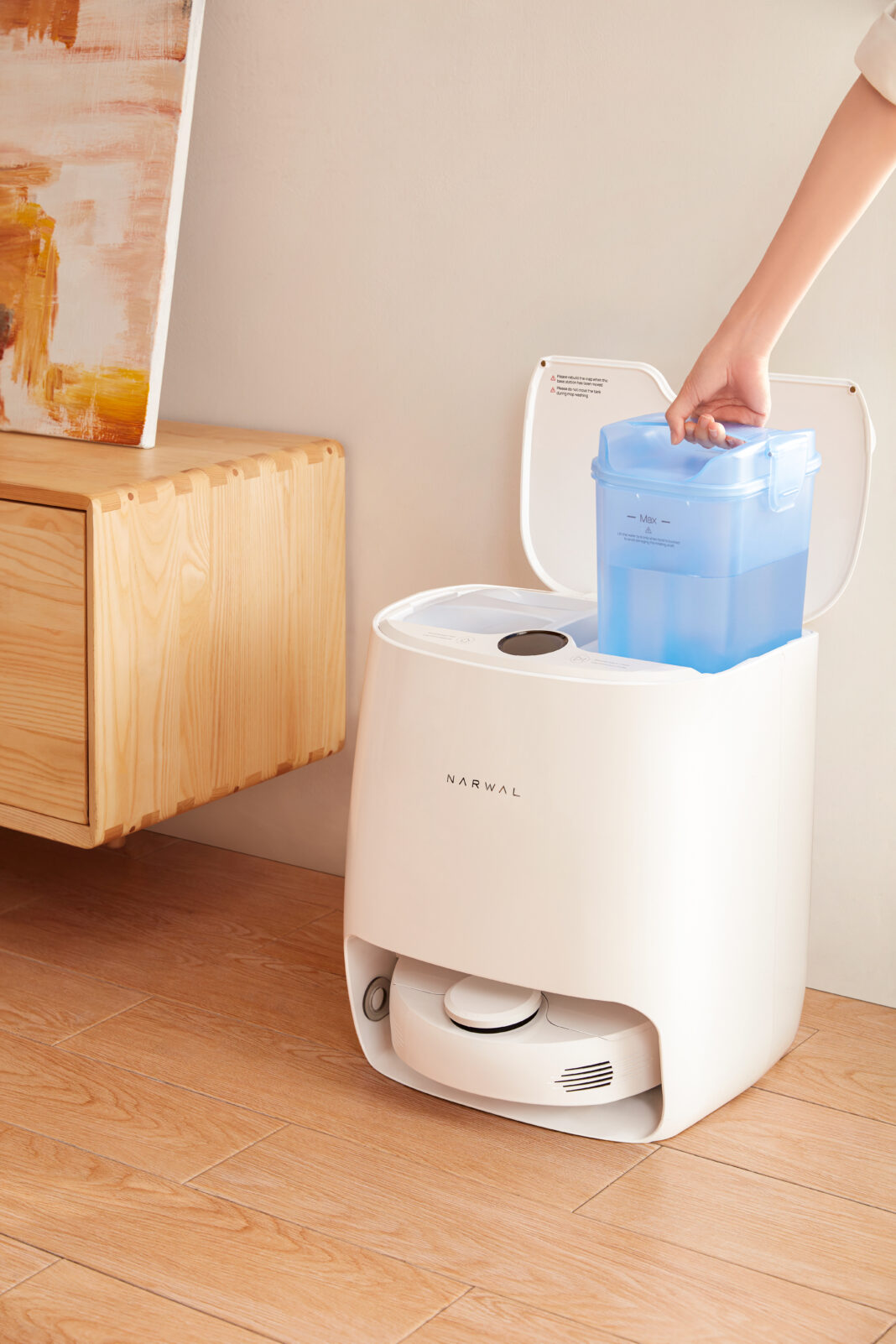As it mops Narwal will notice l when the cleaning pads are dirty and drives itself back to the dock at the dock, it cleans his mopping pads, deposits, dirt, and refreshes the mopping pad with cleaning. Then it returns to where it left off and continues cleaning.
Despite the slow process, the robot completes everything on its own. So the user does not need to keep checking in on it while it cleans. Narwal can connect to a smartphone app to control it remotely and the app is fairly basic which is good for user experience but it is lacking some capabilities that other vacuum apps have. It’s not as much of a downside as Narwal is fairly new in the space and dominating it as well. So Narwal will be updating its capabilities but for now, it can’t schedule cleanings nor can it adjust the amount of water used for miles.
The app does allow you to see the map of the room as well as the mop’s progress and its current location. Once the cleaning session is complete, you can see the cleaning duration, as well as the total area, claimed navigation on the Narwal. Narwhal also uses a LIDAR system to map the room.
The first time the Narwal is used in a room, it needs to run a mapping mode in your home. Depending on the size it can take around 30 minutes or longer to map the entire house. It basically sets up an area on the app.
It’s hard to tell exactly where and how large the blocked-off area needs to be. As a result, it ends up being a sort of guessing check endeavor. The normal is pretty average when it comes to climbing over obstacles, it gets caught on the typical items. We see catch robot vacuums, including getting stuck under low furniture and on Barstool legs.
However, these obstacles are remedied with the in-app area. Despite the climate and area blocking limitations, the Narwal still does a fine job at navigating the home. Once I got my map all set up, it was more or less, hands-off cleaning. When it comes to maintenance, there are a few tasks users need to take care of including changing the water tanks, cleaning the HEPA filter, emptying the onward dustbin, and cleaning the washboard. The change of water tanks, remove the dirty water tank, empty it and rinse it out.
You really do want to make a point to empty the dirty water tank within a day or so of completing a clean the dirty water tank can and will start. The mopping pads are cleaned on the base even. So it’s a good idea to periodically wash them in a washer-dryer to get them extra clean.
The base only claims mop water. It doesn’t store dry debris. So the dust bin for dry debris will need to be emptied after each vacuuming job last but not least. You’ll also need to clean the washboard. The washboard is, or a moveable piece of plastic in the base of the docking station where the mopping pads are.
Narwal recommends cleaning the washboard every two weeks. However, depending on the state of the floors, you may find you want to clean yours more often.
So should you buy it? In our honest review, Narwal is an effective robot mop and vacuum that does a good job. It vacuums hard surface floors extremely well and the mopping capabilities are easily the best we have tested to date.
As the only robot mop that is close to being a full replacement for a traditional, it’s extremely proficient. The carpet vacuum isn’t as great but the performance for the mop is unparalleled.
The spinning mopping pads do a great job, cleaning hard floors. It is thorough and is able to clean messes and make the floors look small. One of the most exceptional features of the Narwal is the docking base with self-emptying water tanks, the water tanks that have a five-liter capacity each, and they hold enough water to clean the entire home.
The robot will go back to the base to clean the mopping pads, then returned to finish cleaning all without the user getting involved. This is a huge benefit for both convenience and noise.







